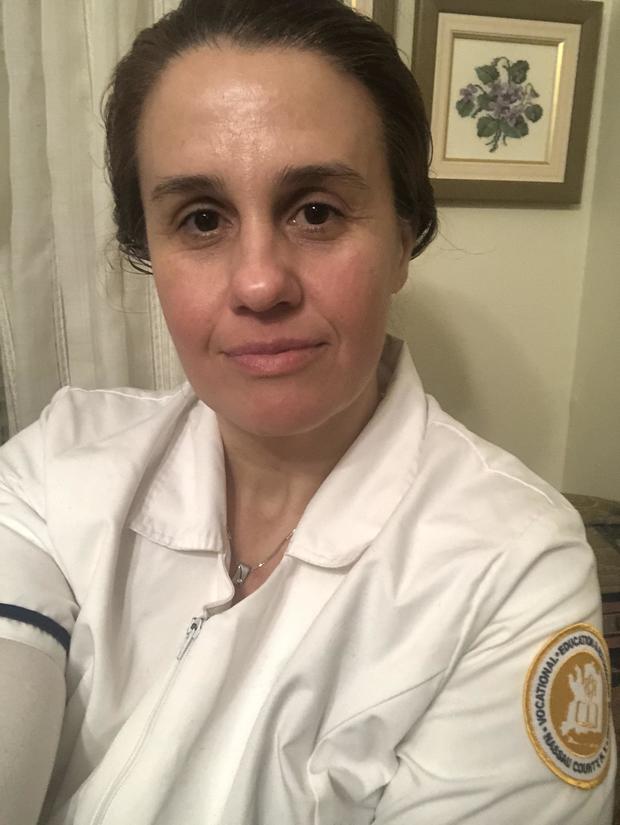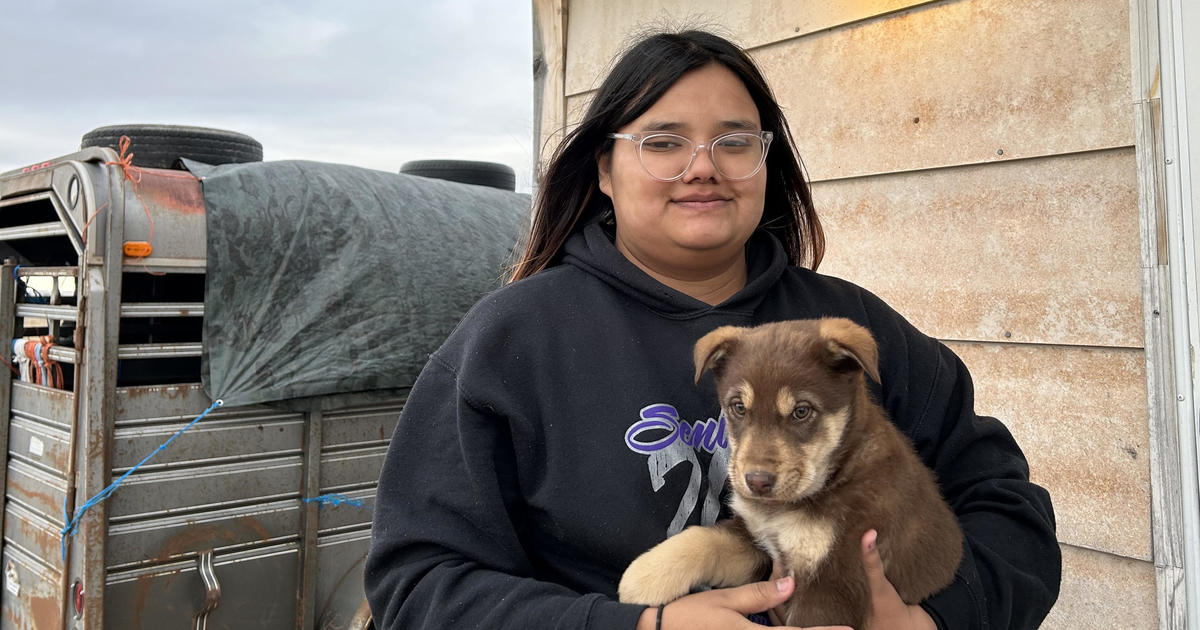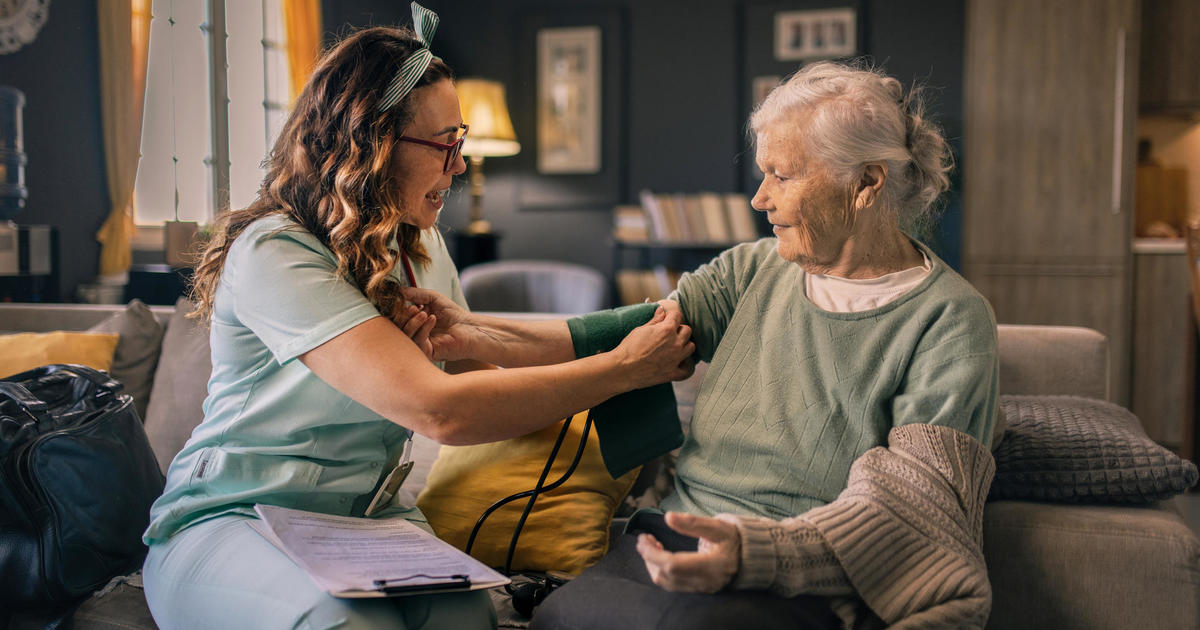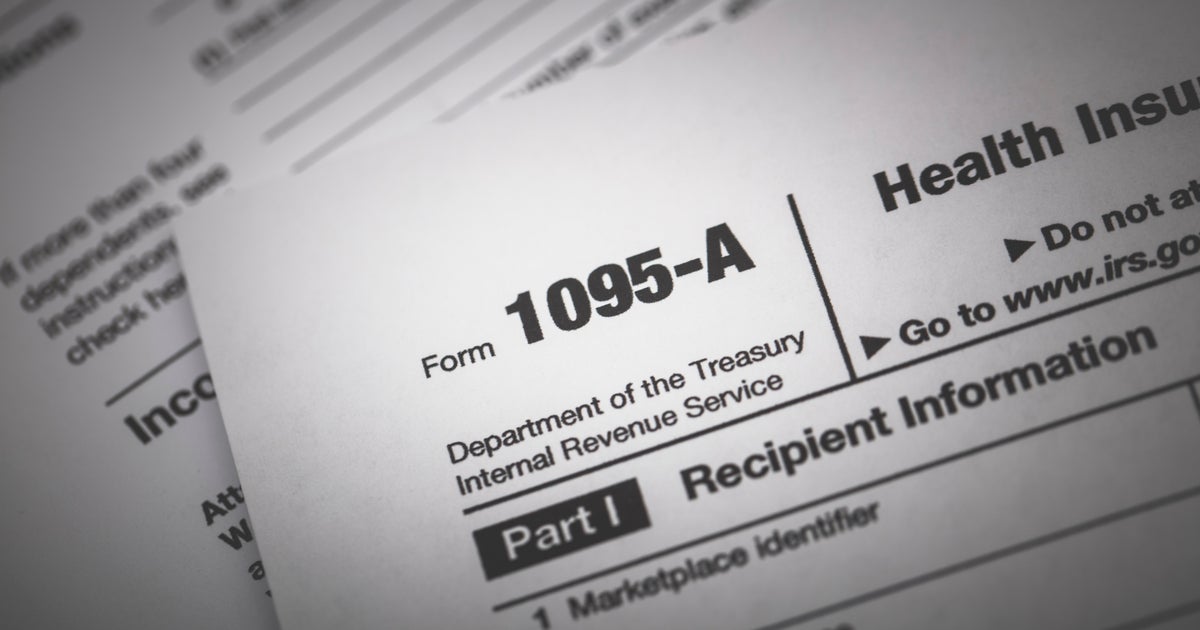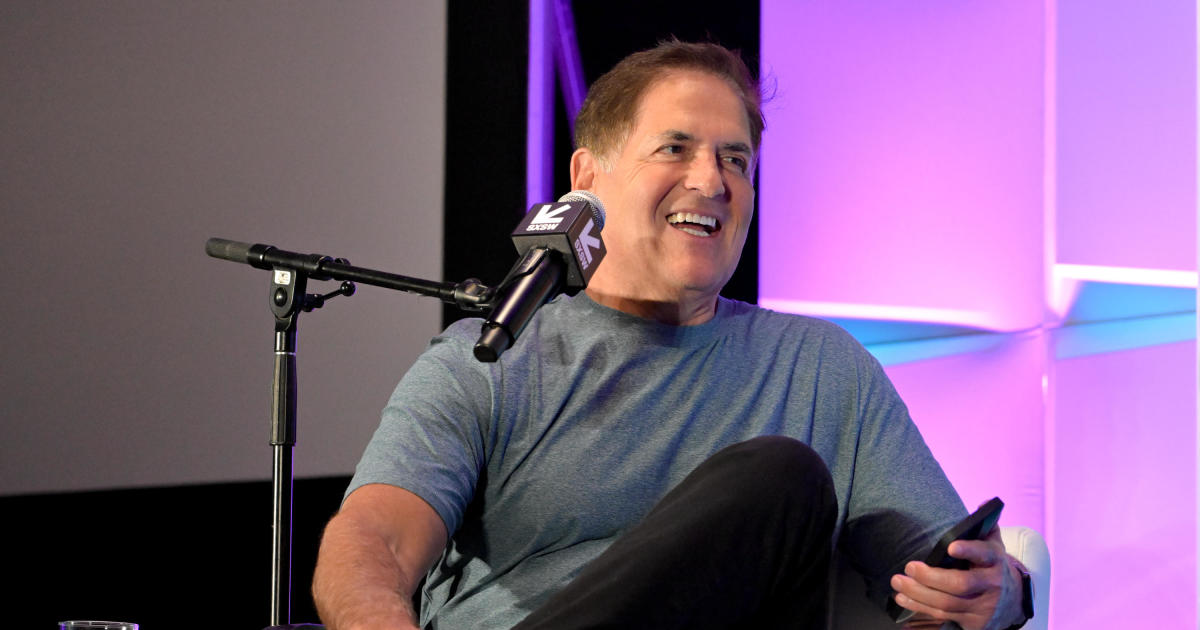Home health care workers are taking care of America's most vulnerable – and they're doing it without PPE
As the coronavirus outbreak continues to flood hospitals in the U.S., governments, businesses, and communities have rallied to provide overburdened emergency care staff with Personal Protective Equipment (PPE). But for the more than 3.2 million home health care workers who care for more than 8.3 million people in the U.S., access to PPE remains relatively scarce.
"I buy [the masks] myself," said Stephanie Williams, a 58-year-old home health care worker in Philadelphia, where more than 1,850 people have been infected and at least 13 people have died from coronavirus. "I have to use the same masks for my clients. I'm paying out-of-pocket and I just can't afford it, especially on an every day basis," she added.
More than 7,000 people nationwide have died from coronavirus, according to Johns Hopkins. The majority of the people infected and who have died are 65 and older, according to the Centers for Disease Control. This demographic makes up 22.7% of the U.S. population and is most likely to need home health care, according to the Census Bureau.
Williams, who works for two different agencies and is represented by the union United Home Care Workers of Pennsylvania, takes care of three clients every week, one of whom is her mother. As part of providing home health care, Williams helps clients with daily tasks, like eating and bathing, and runs errands on their behalf, putting herself and her clients at risk of contracting coronavirus at grocery stores, pharmacies, and other public spaces.
Even getting to her patients is a risk. She has to take two busses to get to her first patient of the day — a disabled elderly man — by 9 a.m. She said the the Market-Frankford Line, commonly known as "the El," is no longer safe. She used to spend time commuting on the train, but another caregiver in her union was jumped on the train on Wednesday.
Williams said she has not received hazard pay for the conditions.
"The only thing I do know is that they tell us if we feel like we're not safe, then they're arranging for unemployment or we can use our PTO [paid time off] time," Williams said.
Williams has received some PPE — hand sanitizer and gloves — from one agency. She said the agency and the union said they will be providing masks soon.
Philadelphia has the most coronavirus cases in Pennsylvania. The state Department of Health told CBS News that "home health workers are among those we are considering as we distribute PPE, balancing their needs with the needs of our healthcare workers and frontline responders."
"We are working to distribute PPE to our hospitals, long-term care facilities, clinics, home health agencies, etc. through identified areas of need, and also through individual issues as they arise," they said. But when CBS News asked for clarification on how much PPE is being supplied to each sector, the department said, "We are not providing that level of data at this time."
For now, Williams is paying for protection herself. She said surgical-type masks are around $2 each, and that N95 masks are roughly $6 each. Ideally, she would have three fresh masks a day — one for each patient and one for commuting.
Matthew Yarnell, president of union SEIU Healthcare PA, said, he talks to home care workers every day "who are working without proper protection and putting their lives at risk to care for the most vulnerable people in this pandemic."
"The Trump administration's slow response to the PPE shortage is an insult to every one of them," Yarnell said. "Home care workers should not be forced to reuse PPE or go without. A federal response is required in a situation like this, that's why it is so important that the president use the Defense Production Act to repurpose manufacturing in the US to produce N95 masks, gowns, gloves, and other PPE."
David Causby, president & CEO of Kindred at Home, the country's largest home health, hospice and community care provider, told CBS News that when the coronavirus outbreak began, they were able to get "maybe hundreds" of gowns and N95 masks from a few states. The company has roughly 80 offices in more than 40 states. They serve roughly 120,000 patients who do not currently have coronavirus.
"We have not received anything from FEMA or the federal government. We continue to be in contact with them daily, trying to explain the critical nature of the home care situation and the need for home care organizations to be moved up the ladder of supplies, but we've not had any success or not received anything to date."
The agency is now down to about 30% of their original supply inventory, Causby said, and getting more PPE for their home health care workers has "become more of a struggle."
"We have worked with vendors to try to obtain supplies from China," he said, " but we just found out this week that all of our orders that had been placed and then confirmed, that the Chinese government has seized those supplies. I'm not sure what they're going to do with those supplies, but the orders we had coming in, have now been canceled."
The CDC has recommended face masks be prioritized "during activities where prolonged face-to-face or close contact with a potentially infectious patient is unavoidable." Williams has this prolonged contact with each of her patients — but she can only afford one clean mask a day while living on her $11 an hour wage.
According to home health care non-profit organization PHI International, thousands of home health care workers are in a similar situation. In a PHI report published in 2020, they found 15% of workers, who are predominantly people of color, live in poverty and 44% live in low-income households. More than 40% rely on public assistance.
"I'm afraid for myself … We are out here. We're going to people's homes and they're trusting us to be OK. We deserve gowns and proper masks," Williams said. "We deserve proper gear, just like the rest of the health care workers out there."
Marina Sapountzis, 51, helps care for a 96-year-old woman five days a week in Queens, New York, who relies on a catheter. She said she is "lucky" that the family of her patient provides PPE, as most families do not pay for those supplies.
There are more than 51,800 cases of coronavirus cases in New York City.
"Lots of home health aides float from home to home, place to place, job to job, daily, and do not have one steady patient, but pick up work where they are needed," she told CBS News. "This puts them at a higher risk for viral and bacterial transmission and leaves them more vulnerable to a much higher rate of exposure compared to having just one patient to care for."
Since New York Governor Andrew Cuomo announced an executive order called Matilda's Law, which requires vulnerable populations to stay home and limits who can visit them, adequate home health care and protection has become more essential.
"Some patients, they have heart problems, a stroke, breathing problems, oxygen tanks," Sapountzis said. "They can range in age, they could be in an accident."
Even for home health aides like herself who only have one patient a day, Sapountzis said having PPE is important because of the various other sources of contact. Along with her two school-age children and three adult children living at home, Sapountzis' husband, a cab driver, has diabetes.
The New York Department of Health would not tell CBS News how they allocate PPE among health care sectors.
"The Department remains committed to getting PPE to home care agencies in need, however we urge all healthcare entities to conserve supplies," they said. "We are communicating that message regularly to healthcare providers."
Jason Kidushim, executive vice president of operations for Alliance Homecare, an agency with approximately 400 home health care workers currently caring for patients in New York, told CBS News their agency has also been unable to get supplies from the state or federal governments.
And the price to get new supplies, Kidushim said, has dramatically increased. He said the cost of a box of gloves has increased about 500%, and that three-ply masks, which used to cost roughly 20 cents each, are now going for $4 or $5. They've seen some N95 masks marketed for $12 each.
To cope with the pandemic, Alliance has instructed workers to take a change of clothes to patients' homes and have provided them with disinfectant to wipe down surfaces, as well as three-ply masks.
"There's not really enough supplies for us to last through the remainder of the crisis," Kidushim said. "We've seen a huge uptick of potential clients that specifically either have tested positive or are recovering from [coronavirus], or have been turned away from the hospital system because their symptoms are not severe enough."
He added that "small regional players" like Alliance will be needed to "relieve a lot this pressure and constraint for the hospitals."
"I think it's overlooked how many seniors are living in isolation and how many probably get routine visits from family members that can't do that right now," he said. "At the end of the day, we have a responsibility to protect our employees. ... Some of these home health aide workers are risking themselves just as much as anyone else."
In Penobscot County, Maine, where there are 16 confirmed cases of coronavirus, home health care worker Athena Diligenti has not been provided masks or any other PPE by her agency.
Those who are 65 or older make up more than 20% of the population, according to the U.S. Census Bureau, and Diligenti cares for a woman in a retirement community in Orono.
"There is gloves at the retirement home where my client lives at, but otherwise I've just been taking my own precautions and being really aggressive about washing my hands," she said. "I wash my hands about 20 times a day."
The CDC has recommended that nursing homes have face masks, gowns, gloves, and eye protection available for those providing care. They have also suggested implementing sick leave policies that are "non-punitive, flexible, and consistent with public health policies that allow ill health care professionals to stay home."
Coronavirus is now the second-leading cause of death in the U.S., and the third-leading cause of death in assisted living facilities, but Diligenti, 24, said her agency has never provided her with PPE or paid sick leave.
The only additional precautions that have been made are by the retirement community itself — they limited social gatherings and visitors — but there are still multiple health care professionals in and out of the patients' rooms throughout the week.
After the coronavirus outbreak at Life Care Center of Kirkland in Washington, the CDC determined that "once COVID-19 has been introduced into a long-term care facility, it has the potential to result in high attack rates among residents, staff members, and visitors," and that public health measures for health care personnel is "critical."
But Williams said her biggest concern right now is officials have not taken this situation to heart and have forgotten about the health care workers who take care of people outside of the hospital.
"It's a lot to think about. I don't just walk out this door like I'm just going to work," she said. "It's ugly, it's really ugly, and it shouldn't have to be this way."
EDITOR'S NOTE: Since the publication of this story, Athena Diligenti told CBS News that her home health care agency has provided her with about a dozen surgical masks.
